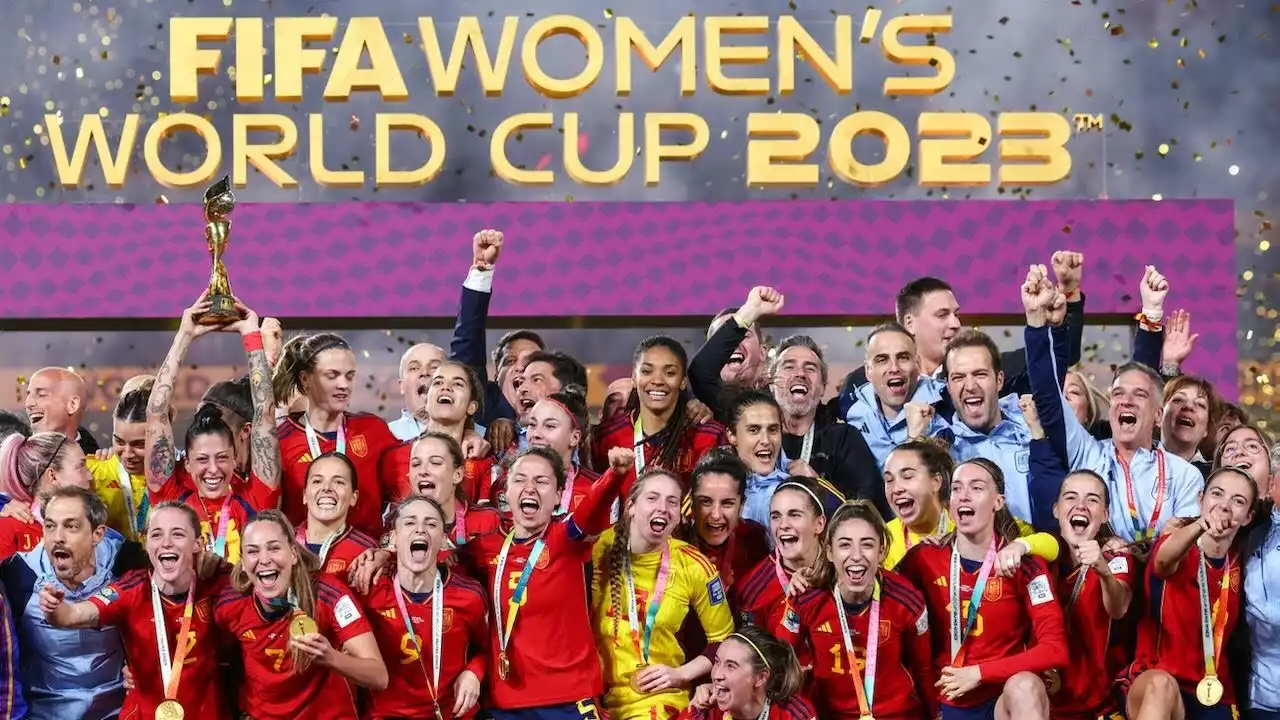History and significance of the Women's World Cup
The Women's World Cup has a rich history that dates back to its inaugural tournament in 1991. Initially, the tournament struggled to gain recognition and support, but over the years, it has grown in popularity and significance. The success of the Women's World Cup can be attributed to the tireless efforts of women athletes, advocates, and organizers who fought for equal opportunities and recognition in the world of soccer.
The significance of the Women's World Cup goes beyond the sport itself. It symbolizes a turning point in the fight for gender equality and challenges the long-standing belief that women's football is inferior to men's. By providing a platform for female athletes to showcase their skills on a global stage, the Women's World Cup breaks down barriers and highlights the immense talent and dedication of women in sports.
Social and cultural impact of the Women's World Cup
The Women's World Cup has a profound social and cultural impact that extends far beyond the soccer field. One of the most significant impacts is the empowerment of women through sports. The tournament serves as a powerful tool to inspire women and girls to believe in their abilities and pursue their dreams, not just in sports but in all aspects of life. By witnessing the strength, skill, and determination of female soccer players, young girls are encouraged to break free from societal expectations and strive for greatness.
In addition to empowering women, the Women's World Cup plays a crucial role in breaking gender stereotypes in football. For decades, women's football has been marginalized and dismissed as a lesser version of the sport. However, the tournament challenges these stereotypes by showcasing the athleticism, technique, and tactical prowess of female players. It forces society to recognize and appreciate the skill and talent of women in football, ultimately leading to a more inclusive and equal sporting landscape.
Furthermore, the Women's World Cup promotes diversity and inclusivity in sports. The tournament brings together teams from various countries, representing different cultures, backgrounds, and identities. This diversity fosters a sense of unity and understanding, breaking down prejudices and promoting acceptance. It sends a powerful message that sports should be a space where everyone is welcome, regardless of their gender, race, or background.
Empowering women through sports
Sports have always been a powerful tool for empowerment, and the Women's World Cup harnesses this power to uplift women and girls around the world. By providing a platform for female athletes to showcase their skills and compete at the highest level, the tournament inspires women to overcome societal barriers and pursue their passion for sports.
The Women's World Cup not only empowers professional athletes but also has a trickle-down effect on grassroots levels. When young girls see their role models competing on the global stage, it ignites a spark within them, motivating them to pursue their dreams of becoming professional athletes. The tournament serves as a beacon of hope, showing young girls that they too can achieve greatness in sports, regardless of their gender.
Moreover, the Women's World Cup encourages women to challenge societal norms and expectations. By defying traditional gender roles and excelling in a male-dominated sport, female soccer players become trailblazers and role models for women around the world. They prove that women can be strong, competitive, and successful in any field they choose, inspiring others to break free from limiting beliefs and pursue their passions fearlessly.
Breaking gender stereotypes in football
Gender stereotypes have long plagued the world of football, perpetuating the notion that the sport is exclusively for men. The Women's World Cup serves as a catalyst for change, challenging these stereotypes and paving the way for a more inclusive and equal sporting landscape. The tournament showcases the immense skill, athleticism, and passion of female players, forcing society to recognize and appreciate women's contributions to the sport.
By breaking gender stereotypes, the Women's World Cup creates opportunities for women in football that were previously denied or limited. It opens doors for aspiring female athletes to pursue professional careers, gain recognition, and earn a living through their passion for the sport. This shift not only benefits individual players but also contributes to the overall growth and development of women's football.
Promoting diversity and inclusivity in sports
Diversity and inclusivity are essential for the growth and progress of any sport. The Women's World Cup serves as a powerful platform to promote these values and create a more inclusive sporting environment. The tournament brings together teams from all corners of the globe, representing different cultures, backgrounds, and identities. This diversity not only enriches the game but also fosters a sense of unity and understanding among players and fans alike.
Inclusivity goes beyond nationality and extends to gender identity and sexual orientation. The Women's World Cup embraces the LGBTQ+ community, providing a safe and supportive space for LGBTQ+ athletes to compete and express themselves. By promoting inclusivity, the tournament sends a message of acceptance and equality, encouraging everyone to participate in and enjoy the beautiful game of football.
Inspiring the next generation of female athletes
One of the most significant impacts of the Women's World Cup is its ability to inspire the next generation of female athletes. When young girls see their role models competing at the highest level, it ignites a fire within them, motivating them to pursue their dreams of becoming professional athletes. The tournament serves as a powerful reminder that with dedication, hard work, and belief in oneself, anything is possible.
The Women's World Cup also breaks down the barriers that hinder young girls from participating in sports. It challenges societal norms and expectations, encouraging girls to defy gender stereotypes and engage in physical activities traditionally associated with boys. By providing visibility and representation, the tournament ensures that young girls have access to female sporting role models, giving them the confidence and inspiration to pursue their athletic aspirations.
Media coverage and representation of women's football
Media coverage plays a crucial role in shaping public opinion and perceptions about women's football. Historically, women's sports have received significantly less coverage and attention compared to men's sports. However, the Women's World Cup has helped shift the narrative by attracting global media attention and generating widespread interest.
The increased media coverage of the Women's World Cup has had a positive impact on the representation of women's football. It provides visibility to female players, giving them the recognition they deserve and inspiring others to follow in their footsteps. The tournament also challenges media stereotypes and biases, forcing journalists and broadcasters to focus on the skills and achievements of female athletes rather than their appearance or personal lives.
Economic impact of the Women's World Cup
The Women's World Cup not only has a social and cultural impact but also carries significant economic implications. The tournament has the potential to boost local economies, generate revenue, and create job opportunities. As the event attracts fans and tourists from around the world, host countries experience a surge in tourism, hotel bookings, and consumer spending.
Moreover, the Women's World Cup presents commercial opportunities for sponsors and advertisers. As the tournament gains popularity and media coverage, brands recognize the value of aligning themselves with women's football. This increased investment in women's sports not only benefits the tournament itself but also contributes to the overall growth and development of women's football globally.









